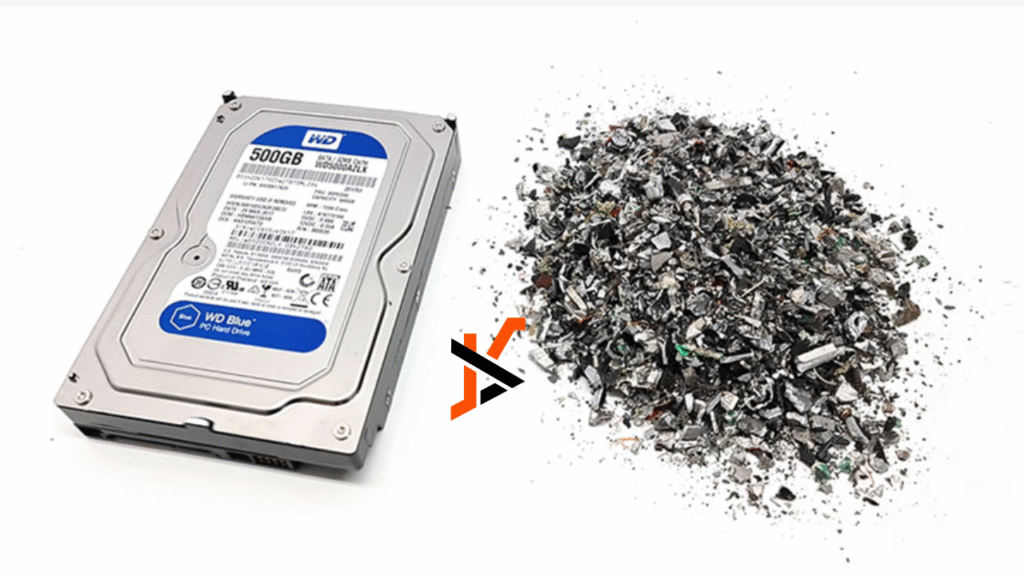In today’s digital age, protecting sensitive data is a top priority for businesses of all sizes. Whether you’re disposing of outdated hard drives, servers, or other electronic media, how you handle data destruction matters. Two widely used approaches are destroying data at the location where it’s stored (on-site) or transporting it elsewhere for destruction (off-site). Each approach has its benefits and drawbacks depending on your company’s security requirements, budget, and operational preferences.
Let’s explore the pros and cons of both methods to help you make the right choice for your business.
On-Site Data Destruction: Pros
- Maximum Security:
On-site destruction happens at your facility, reducing the risk of data breaches during transport. You can witness the process firsthand, ensuring sensitive information never leaves your premises.
- Immediate Verification:
Companies can monitor and confirm that the data has been securely destroyed before the equipment is removed. This adds a layer of transparency and accountability.
- Regulatory Compliance:
For organizations in highly regulated industries (healthcare, finance, legal), on-site data destruction helps meet compliance standards like HIPAA, FACTA, or GDPR with documented proof.
- Convenience:
You won’t need to package or transport your devices. The service provider brings the destruction equipment to you, saving time and labor.
On-Site Data Destruction: Cons
- Higher Costs:
Because the destruction happens at your location, it often involves travel fees and specialized mobile equipment, which can raise the overall service cost.
- Limited Capacity:
On-site equipment may not handle high-volume destruction as efficiently as an industrial off-site facility.
Off-Site Data Destruction: Pros
- Cost-Effective:
Off-site services are generally more affordable since the destruction occurs in a centralized facility with large-scale equipment.
- High-Volume Capability:
If your business needs to dispose of large quantities of electronics or hard drives, off-site facilities can process them faster and more efficiently.
- Eco-Friendly Processing:
Reputable off-site services often include e-waste recycling, ensuring both data and physical components are responsibly destroyed and disposed of.
Off-Site Data Destruction: Cons
- Security Risks During Transport:
Data is at risk of theft or loss during transit. If the chain of custody isn’t strictly followed, it could result in a data breach.
- Delayed Verification:
You may not be able to witness the destruction, and you’ll have to rely on a certificate of destruction or audit trail for proof.
Which Option Is Right for You?
Choosing between on-site and off-site data destruction depends on your organization’s priorities. If security and compliance are critical, on-site might be the best choice. If you’re managing bulk equipment and looking to cut costs, off-site could be more practical.
Protect Your Data with Trusted Professionals
Whether you prefer on-site or off-site data destruction, make sure you’re working with a certified, experienced provider who can guarantee secure handling and proper documentation.
Ready to secure your data the right way?
Contact us today to schedule your certified data destruction service and protect your business from potential risks.
This post was written by Steven Elia Co-Founder and Recycling Director at eCycle Florida. eCycle Florida is a R2 Certified electronics recycling company in the state of Florida. At eCycle Florida, we specialize in secure electronics destruction and responsible recycling. When it comes to electronic recycling in Tampa, we’re the trusted choice.

